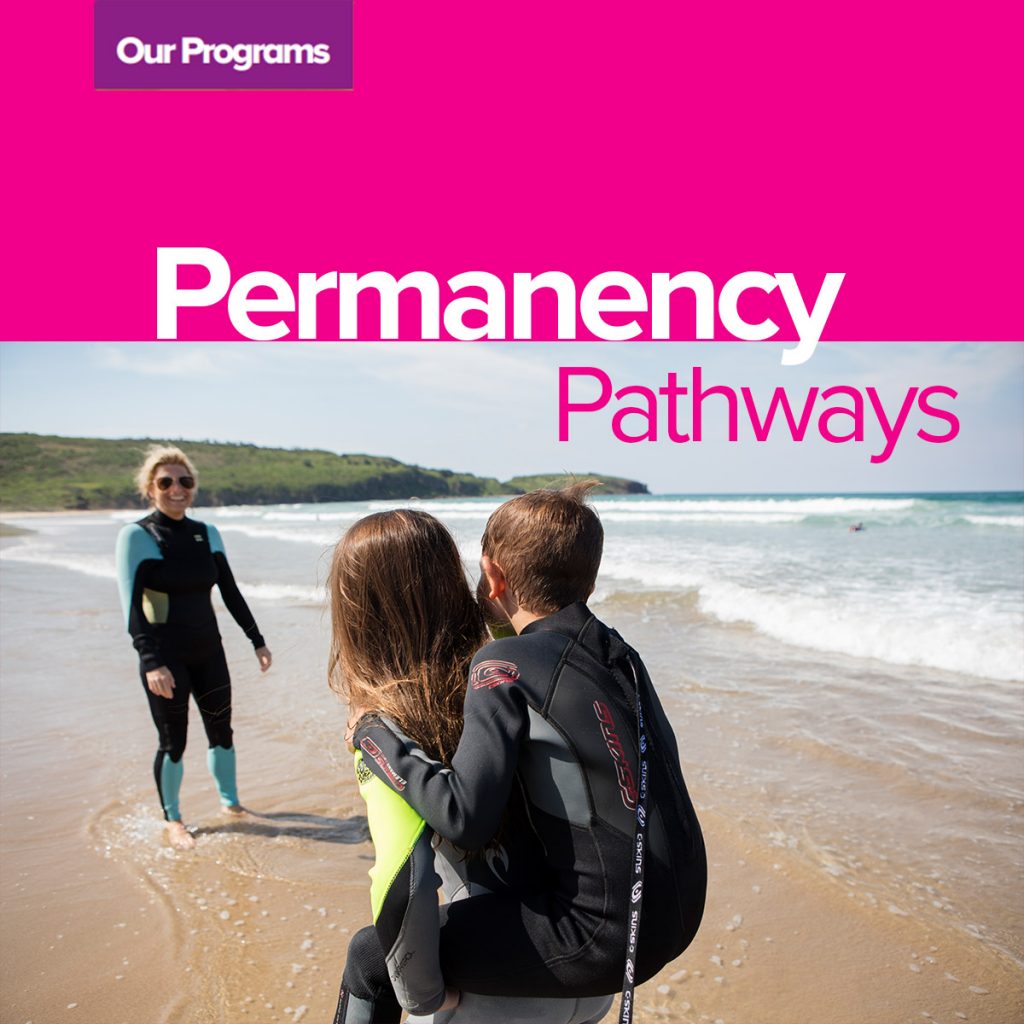
Becoming a carer can be for just a few nights, a period of weeks or months, or a lifetime commitment.
CareSouth believes in linking vulnerable children to strong carer families who can provide short or long-term care to help children and families in need.
You can help through one of the many permanency pathways below:
Emergency Care is needed when there are concerns for a child’s immediate safety. Emergency carers need to be able to provide care at short notice, after hours and on weekends.
Respite Care gives foster families a break and provides a positive experience for a child or young person. This is for short periods of time, usually one weekend a month, during school holidays or sometimes during the week. It is usually planned and scheduled in advance.
Family Preservation and Restoration involves providing early interventionactivities and intensive support tofamilies, so that vulnerable childrenand young people can remain withor be returned to their families whenit is safe to do so. It is the preferredpermanency option if a child or youngperson is placed in Out-of-HomeCare while their family is supported tostrengthen their parenting.
Foster Care can be for a period of up to two years, sometimes longer, while long-term decisions are being made for a child or young person. There is a focus on reuniting the child with their birth parents or extended family where this is possible.
Kinship Care is when a child or young person lives with a relative or someone they already know.
Guardianship provides children and young people with greater stability following a Children’s Court decision that they cannot live with their parents. A guardian can be a relative or kinship carer, a family friend or an authorised carer who has an established, positive relationship with the child or young person. Guardians have full care, legal and decision-making responsibility for a child or young person in their care until the age of 18.
Adoption is a way of providing a permanent family for a child or young person who can’t be restored to their parents or live with a relative or kinship carer. This is usually ‘open adoption’ which means supporting children and young people to remain connected to their birth family and cultural heritage. Foster carers who have had a child or young person in their care for a period of time may wish to adopt.
No matter what way you help, your commitment will be valued. A stable home, predictable routine and carers who set firm but loving boundaries can make a huge difference in the life of a child or young person. You’ve never been more needed.
You can contact us via the form below or give us a call on 1300 554 260.


